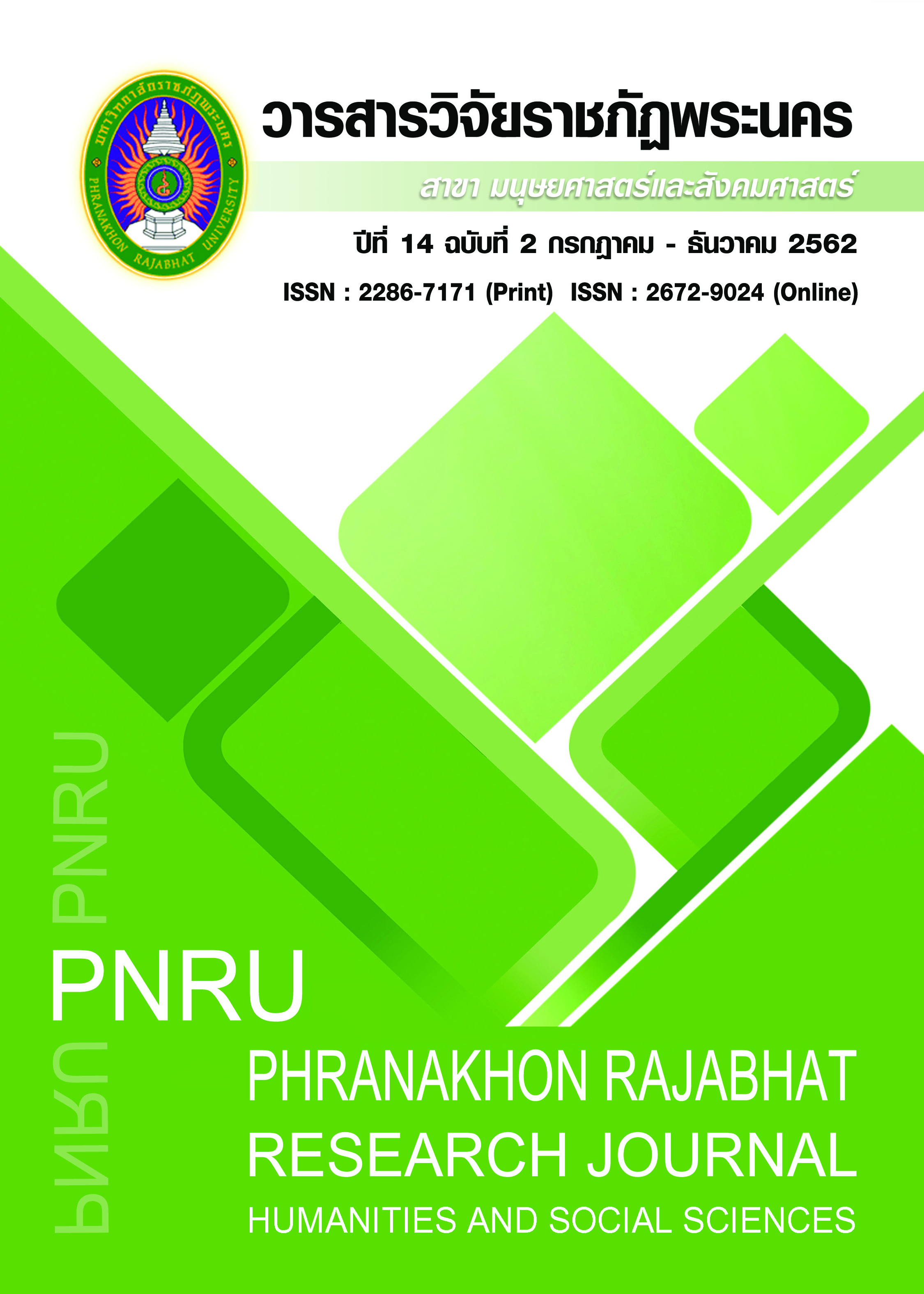YOUTH EMPOWERMENT MODEL TOWARDS THE CONSERVATION OF CULTURAL WORLD HERITAGE TOURISM SITE: A CASE STUDY OF AYUTTHAYA HISTORICAL PARK
Main Article Content
Abstract
The research aimed to 1) analyze and synthesize the key elements for the youth empowerment to conserve cultural world heritage tourism site, 2) study the factors influential to the youth empowerment and 3) develop the youth empowerment model to conserve cultural world heritage tourism site. The samples were the 380 students from educational organizations within Ayutthaya historical park area including 40 youth leaders, the representatives from governmental organizations and education personnel. The statistics used in this research for data analysis were percentage, average value, standard deviation, multiple regression
analysis, and content analysis. It was found that 1) four key elements for youth empowerment include self-esteem, freedom of thought, partnership, and participation, 2) motivations, social support and knowledge on cultural world heritage tourism site showed the variation of youth empowerment towards the conservation of cultural world heritage tourism site accounting for 36.7 percent, and 3) the model of youth empowerment was as follows: educational institutions had created learning management plans by integrating topics of cultural world heritage tourism site into several academic courses, and the provincial youth committee to
conduct conservation of cultural World Heritage sites.
Article Details
Each publish articles were copyright by Phranakorn Rajabhat University
Any contents which appeared in each articles in the journal were authors personal opinion. It did not relate to Phranakorn Rajabhat University and other instructors in the university. Each authors would take responsibility on their articles. If there are any mistake, the authors will take responsibility themselves
References
Kongjareon, M. (2017). Development of a community empowerment model for the promotion of democratic and civic conscience. Journal of Education. 18(2), 110-127. (in Thai)
Kopolrat, K. (2012). School-based empowerment to develop smoking prevention project adolescents. Master of nursing science, Khon Kaen University. (in Thai)
Phakeewai, S. (2010). Conservation behavior of youth participating in natural resource and environmental conservation camp in national park: a case study of Kaenkrachan
national park. (2010). Master of Science Program in Parks, Recreation, and Tourism, Kasetsart University. (in Thai)
Sanpakeaw,W. & Kovin, C. (2014).Guidelines for the promotion of youth energy conservation consciousness. OJED. 9(2), 462-475. (in Thai)
Supakitgosol, P. et al. (2011). The participation communities in managing the world heritage sites: case study of Pranakaornsri ayuthaya Historical Park and Sukothai Srisushanalai Kampangpet Historical Park. Suan Dusit Rajabhat University. (in Thai)
Takulthongjaroen, P.M. (2014). The awareness of cultural Heritage conservation through the participation process: a case study of Saladaeng Nua Village, Chiang Rak Noi. M.Arch. (Interior Architecture), Bangkok University. (in Thai)
Thammathikul, A. (2015). The development an elderly empowerment model develops community. Doctor of the philosophy program in development education, Foundation Graduate School, Silapakorn University. (in Thai)
The Fine Arts Department. (1985). The rule of Department of Fine Arts concerning ancient monuments conservation B.E. 2518. (in Thai)
The Fine Arts Department. (2018). Ayutthaya Historical Park. Retrieved June 3, 2018, from https://www.finearts.go.th/parameters/ความรู้ทั่วไป/อุทยานประวัติศาสตร์/item/อุทยาน ประวัติศาสตร์-พระนครศรีอยุธยา.html (in Thai)
Thongpanya, T. (2014). A participatory empowerment process for raising youth’s consciousness in Community development. Doctor of philosophy (human and community resource development). Kasetsart University. (in Thai)


